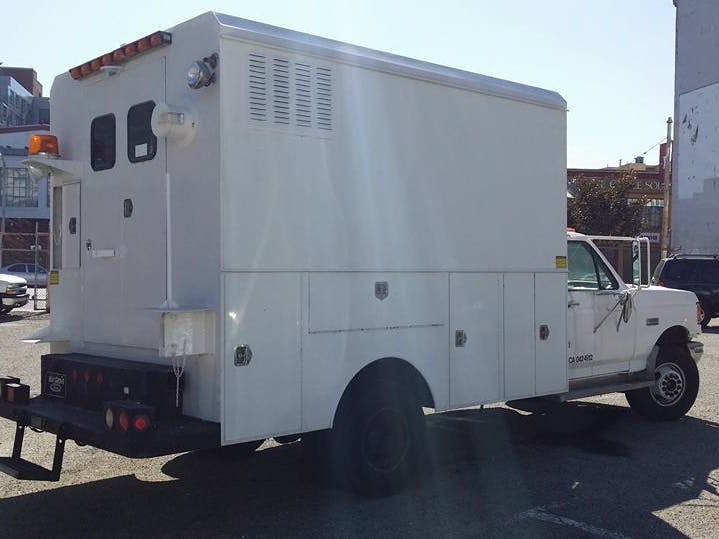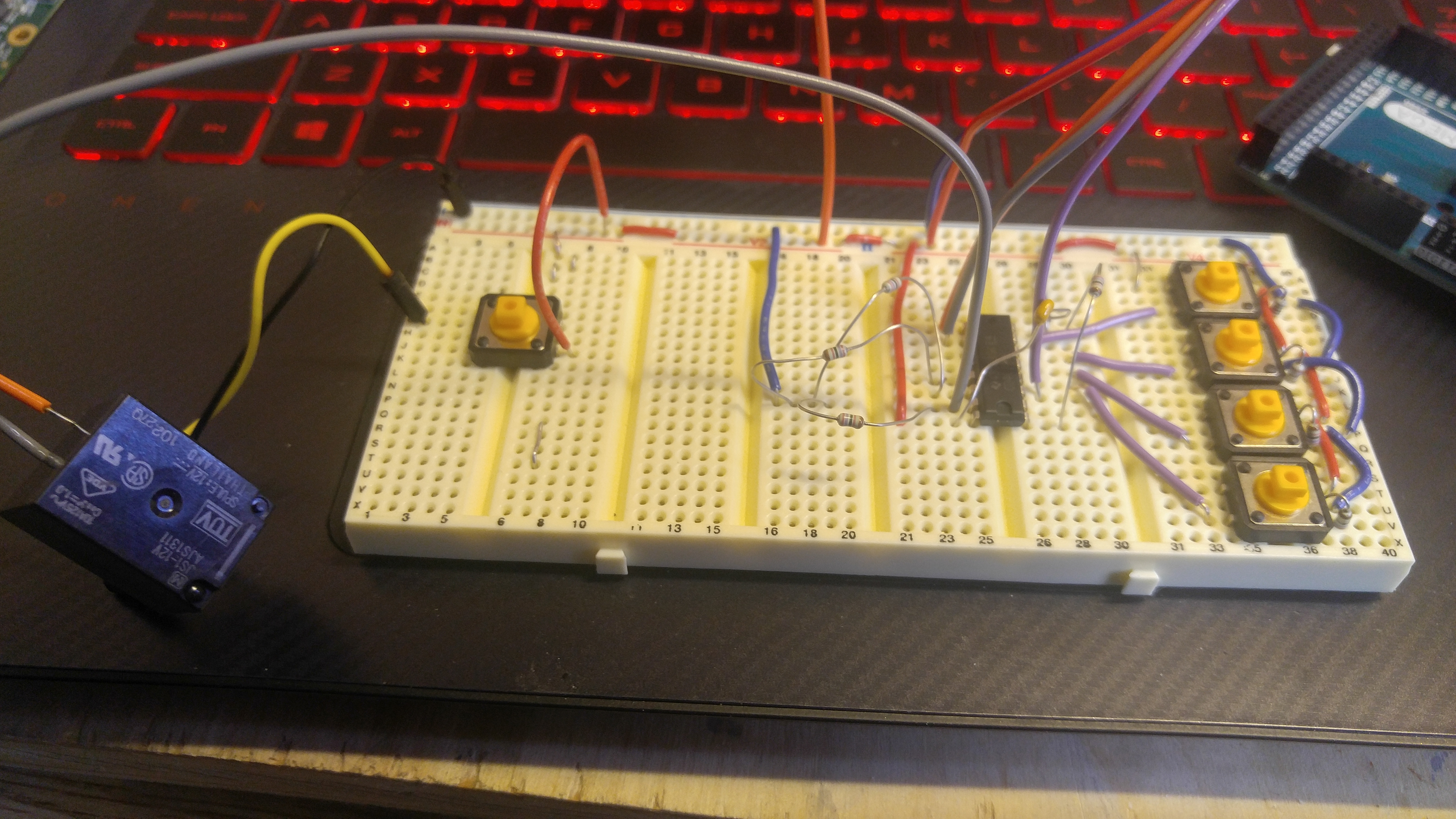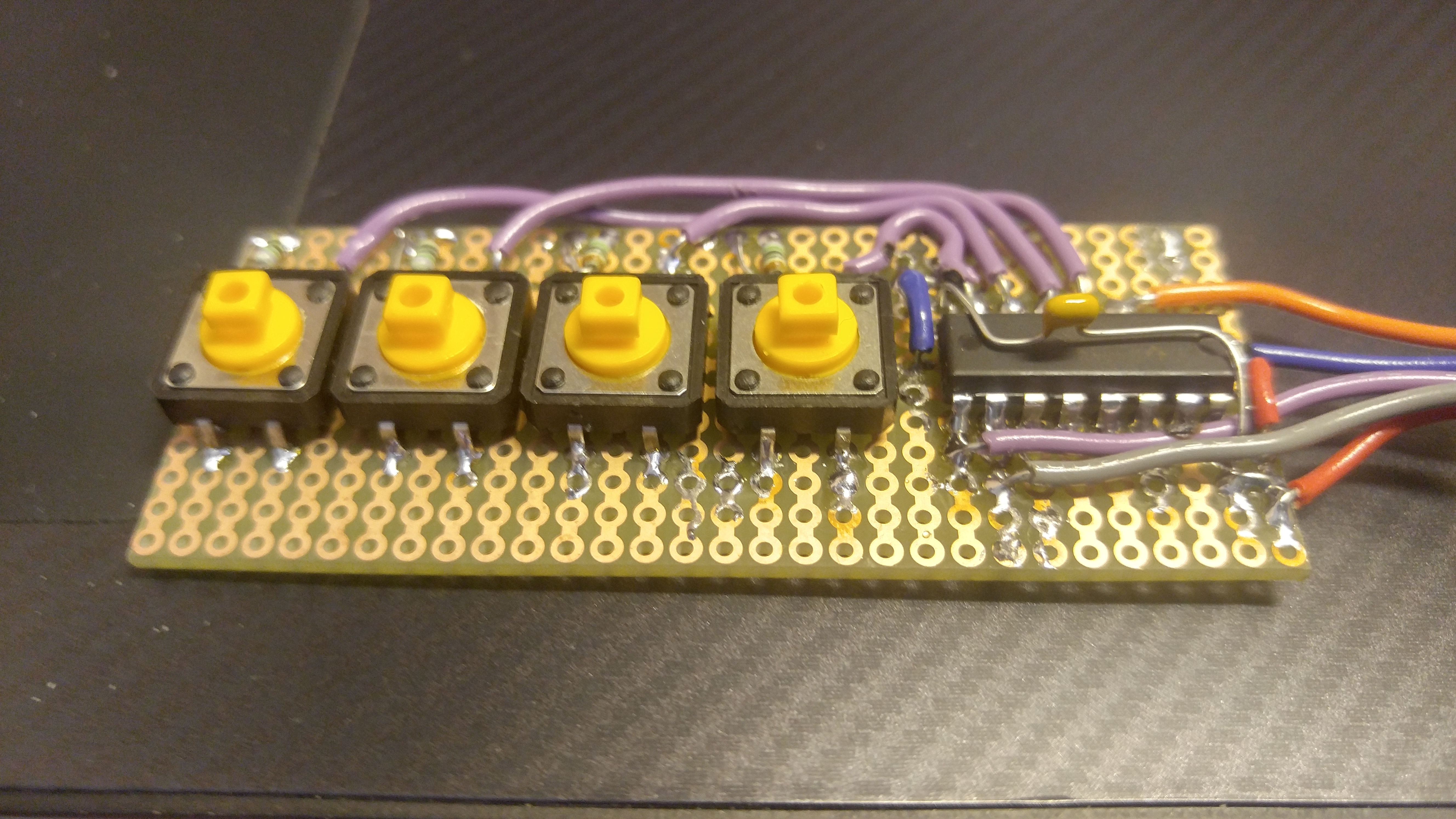//**************************************************************//
// Name : shiftIn Example 1.2 //
// Author : Carlyn Maw //
// Date : 25 Jan, 2007 //
// Version : 1.0 //
// Notes : Code for using a CD4021B Shift Register //
// : //
//****************************************************************
//define where your pins are
int latchPin = 8;
int dataPin = 9;
int clockPin = 7;
//Define variables to hold the data
//for shift register.
//starting with a non-zero numbers can help
//troubleshoot
byte switchVar1 = 72; //01001000
//define an array that corresponds to values for each
//of the shift register's pins
char note2sing[] = {
'C', 'd', 'e', 'f', 'g', 'a', 'b', 'c'};
void setup() {
//start serial
Serial.begin(9600);
//define pin modes
pinMode(latchPin, OUTPUT);
pinMode(clockPin, OUTPUT);
pinMode(dataPin, INPUT);
}
void loop() {
//Pulse the latch pin:
//set it to 1 to collect parallel data
digitalWrite(latchPin,1);
//set it to 1 to collect parallel data, wait
delayMicroseconds(20);
//set it to 0 to transmit data serially
digitalWrite(latchPin,0);
//while the shift register is in serial mode
//collect each shift register into a byte
//the register attached to the chip comes in first
switchVar1 = shiftIn(dataPin, clockPin);
//Print out the results.
//leading 0's at the top of the byte
//(7, 6, 5, etc) will be dropped before
//the first pin that has a high input
//reading
Serial.println(switchVar1, BIN);
//This for-loop steps through the byte
//bit by bit which holds the shift register data
//and if it was high (1) then it prints
//the corresponding location in the array
for (int n=0; n<=7; n++)
{
//so, when n is 3, it compares the bits
//in switchVar1 and the binary number 00001000
//which will only return true if there is a
//1 in that bit (ie that pin) from the shift
//register.
if (switchVar1 & (1 << n) ){
//print the value of the array location
Serial.println(note2sing[n]);
}
}
//white space
Serial.println("-------------------");
//delay so all these print satements can keep up.
delay(500);
}
//------------------------------------------------end main loop
////// ----------------------------------------shiftIn function
///// just needs the location of the data pin and the clock pin
///// it returns a byte with each bit in the byte corresponding
///// to a pin on the shift register. leftBit 7 = Pin 7 / Bit 0= Pin 0
byte shiftIn(int myDataPin, int myClockPin) {
int i;
int temp = 0;
int pinState;
byte myDataIn = 0;
pinMode(myClockPin, OUTPUT);
pinMode(myDataPin, INPUT);
//we will be holding the clock pin high 8 times (0,..,7) at the
//end of each time through the for loop
//at the begining of each loop when we set the clock low, it will
//be doing the necessary low to high drop to cause the shift
//register's DataPin to change state based on the value
//of the next bit in its serial information flow.
//The register transmits the information about the pins from pin 7 to pin 0
//so that is why our function counts down
for (i=7; i>=0; i--)
{
digitalWrite(myClockPin, 0);
delayMicroseconds(0.2);
temp = digitalRead(myDataPin);
if (temp) {
pinState = 1;
//set the bit to 0 no matter what
myDataIn = myDataIn | (1 << i);
}
else {
//turn it off -- only necessary for debuging
//print statement since myDataIn starts as 0
pinState = 0;
}
//Debuging print statements
//Serial.print(pinState);
//Serial.print(" ");
//Serial.println (dataIn, BIN);
digitalWrite(myClockPin, 1);
}
//debuging print statements whitespace
//Serial.println();
//Serial.println(myDataIn, BIN);
return myDataIn;
}










Comments